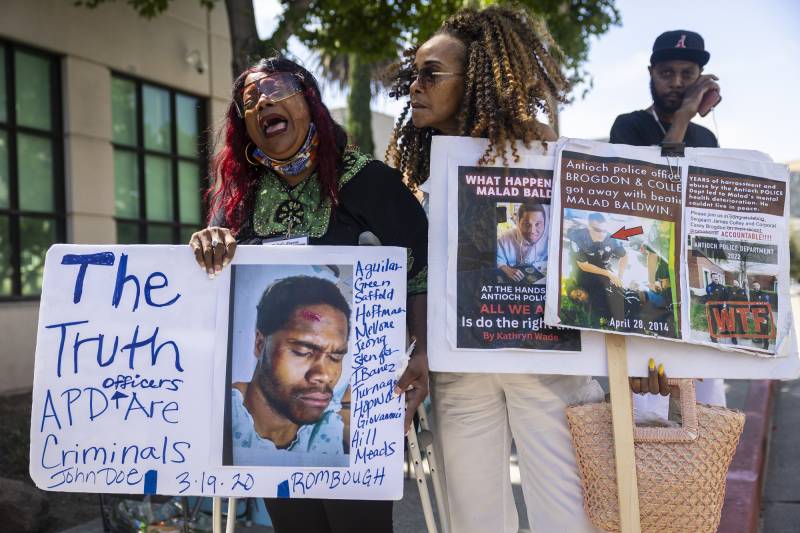Catch up fast: The four men, all in their early 20s, are accused of a drive-by shooting in an Antioch neighborhood in March 2021. Arnold Marcel Hawkins, 22, was killed and another man was injured. The arrest of the four men was heralded by East Bay law enforcement as a step toward reducing gun violence. In court, the men argued their arrests were motivated by racial bias.
The context: For years, Antioch residents have reported racist and illegal behavior by local law enforcement. They have protested fatal shootings by police. Last summer, an FBI investigation into criminal misconduct by Pittsburg and Antioch police officers uncovered thousands of racist text messages. Nearly half of the Antioch police department was temporarily put on leave after the discovery and the police chief resigned. Ten law enforcement employees were eventually charged with federal crimes, including fraud, civil rights abuses and falsification of records. The still-unfolding police misconduct scandal is the biggest to hit the Bay Area since the Oakland Riders case in the early 2000s.
The big picture: The California Racial Justice Act, the first of its kind in the nation, was passed in 2020. Contra Costa is a hot spot for defense attorneys testing the law’s limit. In the case decided this week, attorneys argued that the entire Antioch Police Department has operated with a culture that permits and promotes racism for years.
